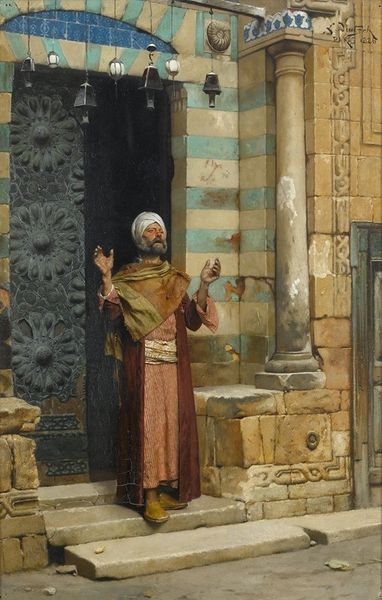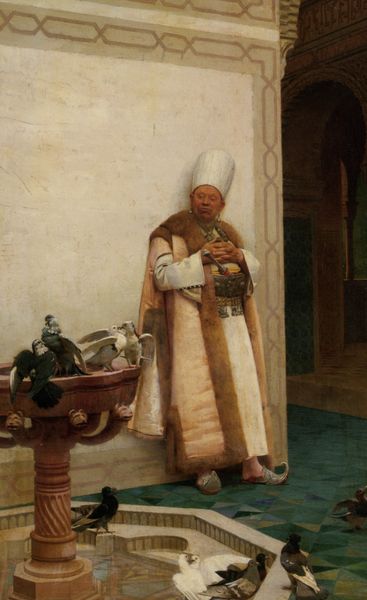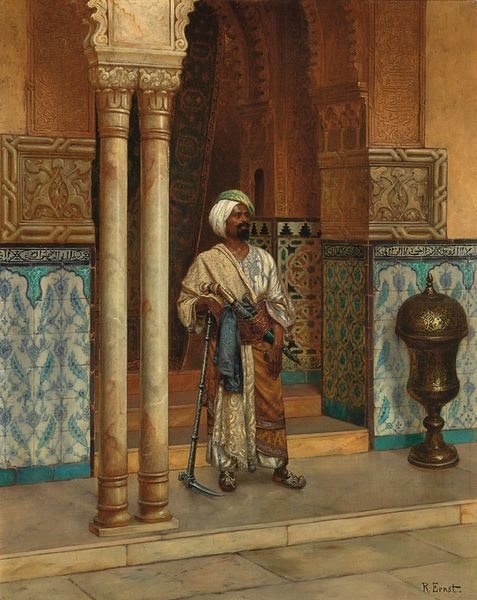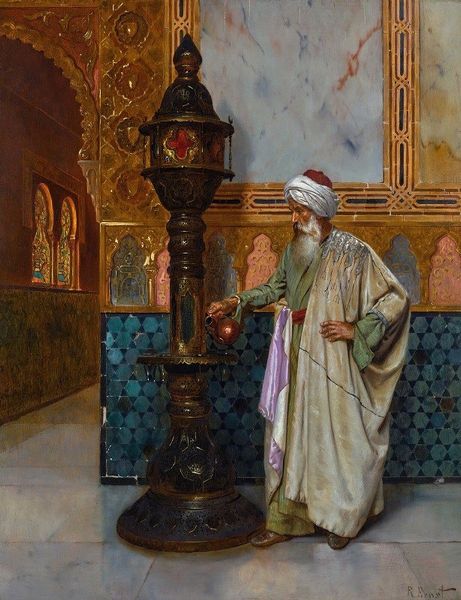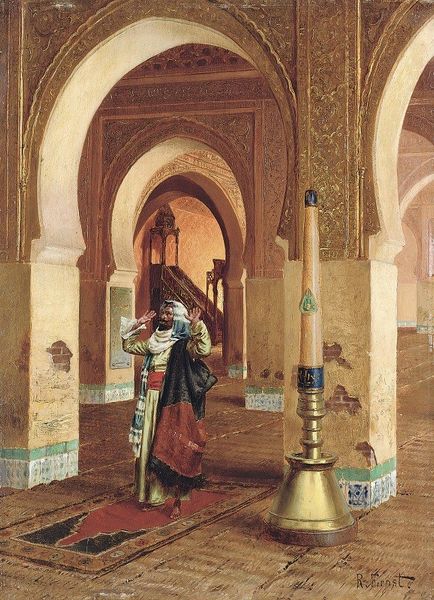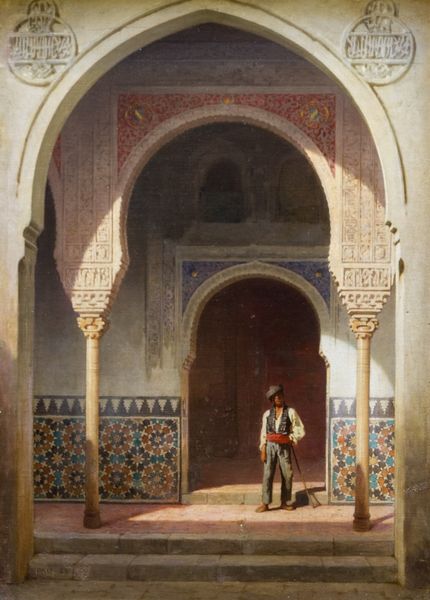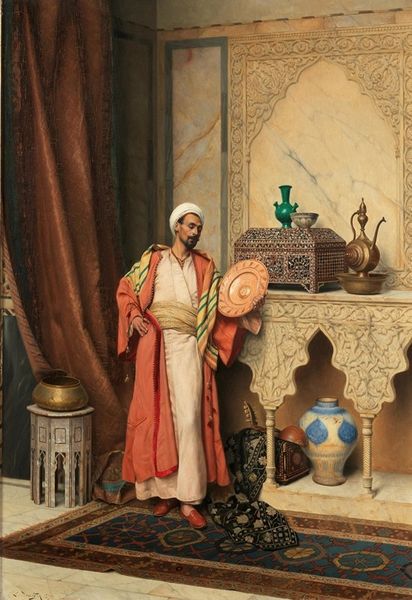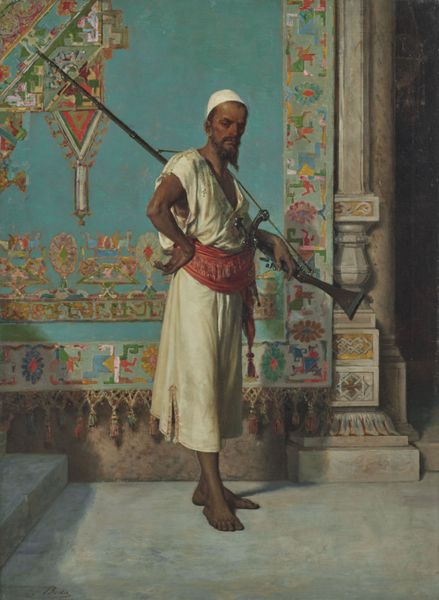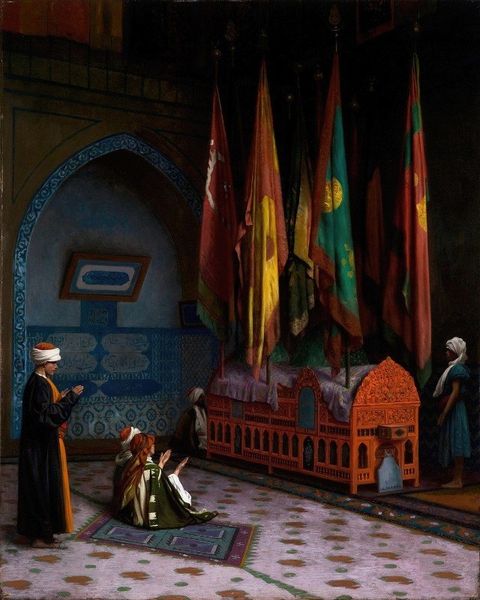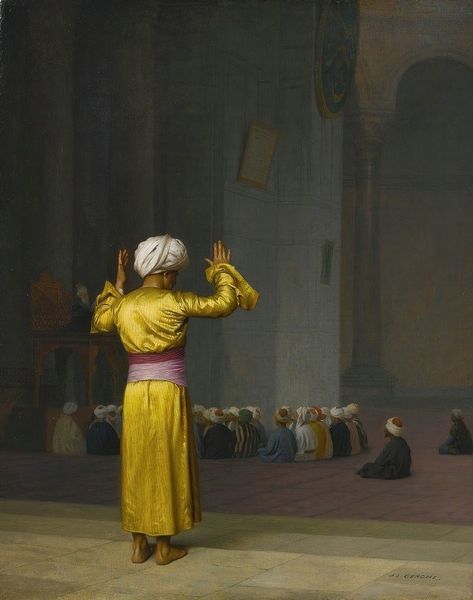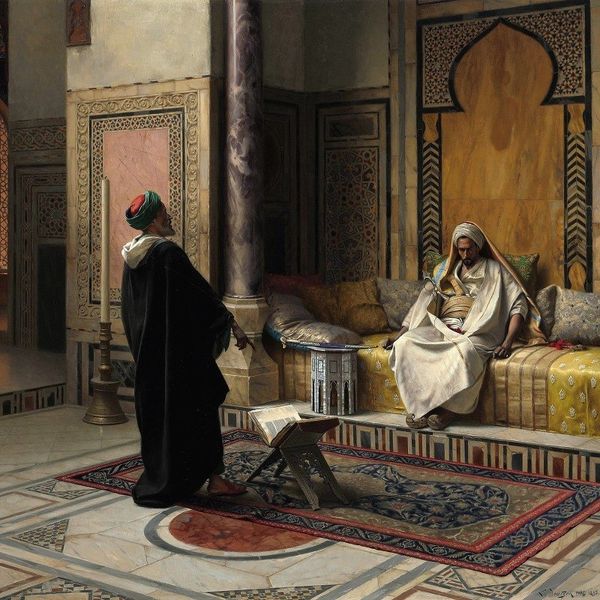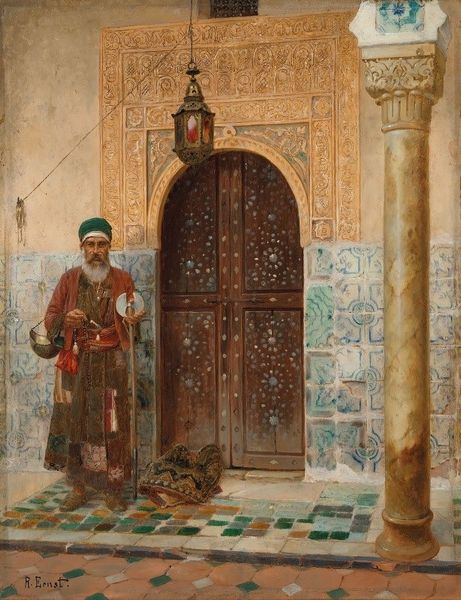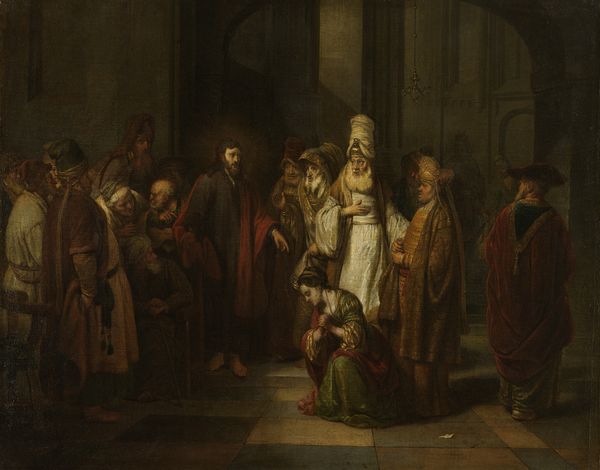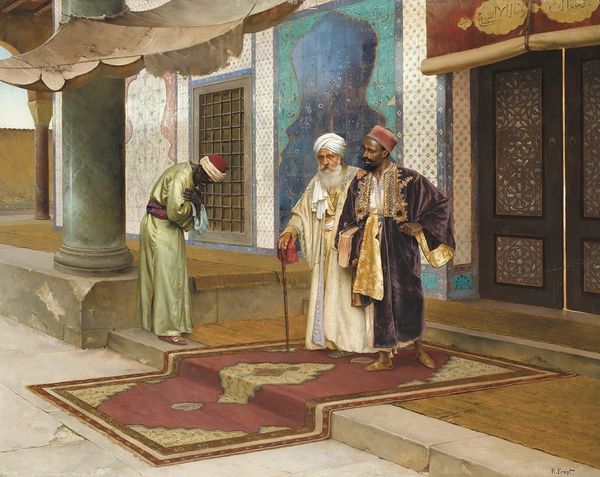
painting, oil-paint
#
portrait
#
figurative
#
painting
#
oil-paint
#
figuration
#
orientalism
#
genre-painting
#
academic-art
#
historical building
Copyright: Public Domain: Artvee
Jean-Léon Gérôme painted "The Grand White Eunuch" in the late 19th century, a period when Europe was fascinated by the so-called "Orient." Gérôme, a French artist, was known for his Orientalist paintings. These paintings often depicted scenes from the Middle East and North Africa, feeding into the European imagination of these regions as exotic and mysterious. The setting here, a Turkish bath, was a popular subject, allowing artists to explore themes of sensuality and leisure within a safe, "foreign" context. The central figure, the eunuch, stands as a complex symbol. In the Ottoman court, eunuchs held positions of power and influence, but were also viewed with suspicion and otherness. Gérôme's painting participates in this ambiguous view, highlighting the eunuch's role as both a figure of authority and an outsider. To fully understand this work, we need to consider the history of Orientalism and the complex power dynamics between Europe and the Middle East during this time. Art history provides the methods and the context.
Comments
No comments
Be the first to comment and join the conversation on the ultimate creative platform.
